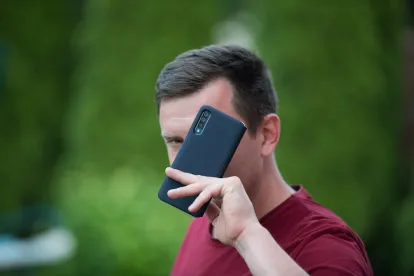A federal district court in Texas recently denied a Defendant’s motion to dismiss a TCPA complaint, finding that regulations regarding the National Do-Not-Call Registry apply to unsolicited telephone calls to a wireless phone when the phone is used for residential purposes.
In Hunsinger v. Alpha Cash Buyers, LLC, No. 3:21-CV-1598-D, 2022 WL 562761 (N.D. Tex. Feb. 24, 2022), Plaintiff alleged that Defendant placed and sent eight unsolicited telephone calls and six text messages to a cell phone he used for “personal and household purposes,” even though his number was on the National Do-Not-Call Registry. Defendant moved to dismiss, claiming, among other things, that Plaintiff failed to plausibly plead a violation of the TCPA because the Do-Not-Call regulations “apply only to residential telephones, and [Plaintiff] pleads that he was contacted on his cellular telephone.”
By way of context, in 1991, Congress adopted the TCPA, authorizing the FCC to, among other things, create a National DNC Registry to protect residential subscribers from unwanted solicitations that were tying up their home phone lines. Specifically, 47 U.S.C. § 227(c) directed the Commission to initiate rulemaking proceedings “concerning the need to protect residential telephone subscribers’ privacy rights” and granted the FCC authority to establish “a single national database to compile a list of telephone numbers of residential subscribers who object to receiving telephone solicitations.” 47 U.S.C. § 227(c)(1)–(3) (emphasis added). Pursuant to this authority, the FCC promulgated 47 C.F.R. § 64.1200(c)(2), which prohibits persons or entities from initiating telephone solicitations to “[a] residential telephone subscriber who has registered his or her telephone number on the national do-not-call registry of persons who do not wish to receive telephone solicitations that is maintained by the Federal Government.” 47 C.F.R § 64.1200(c)(2).
The FCC also added a further section to the regulations that purports to extend its Do-Not-Call regulations to wireless phone numbers when those phones are used by certain residential consumers. 47 C.F.R § 64.1200(e).
The Hunsinger Court agreed with the Plaintiff. Citing Section 64.1200(e), the Court observed that national Do-Not-Call regulations applied to “any person or entity making telephone solicitations or telemarketing calls to wireless telephone numbers.” The Court deferred to the 2003 FCC Order, wherein the Commission explained that “it is more consistent with the overall intent of the TCPA to allow wireless subscribers to benefit from the full range of TCPA protections[,]” and that “wireless subscribers may participate in the national do-not-call list.” As a result, the Court concluded that Plaintiff had “alleged sufficient facts for the court to draw the reasonable inference that his cellular telephone is a ‘residential telephone’ for purposes of 47 C.F.R. §§ 64.1200(c).”
Notably, the Defendant did not raise the argument (and the Court did not consider) whether, in adopting its 2003 expansion of the DNC rules, the FCC had exceeded the scope of authority Congress granted it in 1991 by re-interpreting “residential subscriber” to include cell phones. There is good reason to conclude that the FCC’s 2003 interpretation is not entitled to deference, given that the plain language of the TCPA clearly distinguishes between “residential” and “wireless” lines. See, e.g., Morgan v. U.S. Xpress, Inc., No. 3:17-cv-00085, 2018 WL 3580775, at *2 (W.D.Va. July 25, 2018) (granting motion to dismiss where Plaintiff alleged only that he received calls on his “cellular telephone line” and noting that “Congress’s structural choice to treat [residential and cellular telephone lines] differently has been observed by abundant and uniform authority.”). Indeed, in a case raising allegations similar to those present here, another federal court in Texas determined that the private right of action created by the TCPA “is . . . limited to redress for violations of the regulations that concern residential telephone subscribers” not “Plaintiff’s cellular phones.” Cunningham v. Politi, No. 4:18-CV-00362-ALM-CAN, 2019 WL 2517085, at *4 (E.D. Tex. June 19, 2019).
In sum, although some courts may view the FCC’s DNC regulations and 2003 Order as dispositive on the issue whether the TCPA prohibits unsolicited telephone calls to a cell phone used for residential purposes, that does not settle the issue for all time. Formidable counterarguments exist that should not be overlooked by companies facing claims that a call to a cellular telephone registered on the National Do-Not-Call list gives rise to a private right of action under the TCPA.



 />i
/>i
